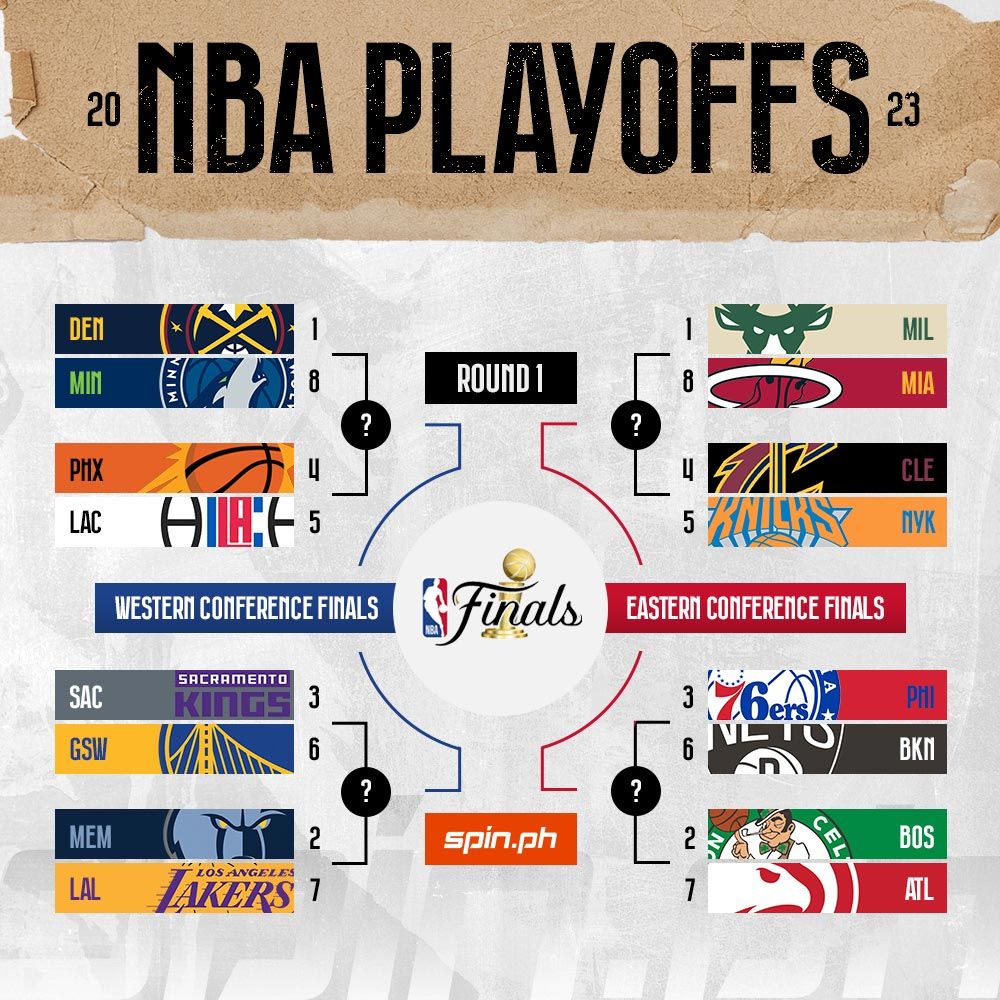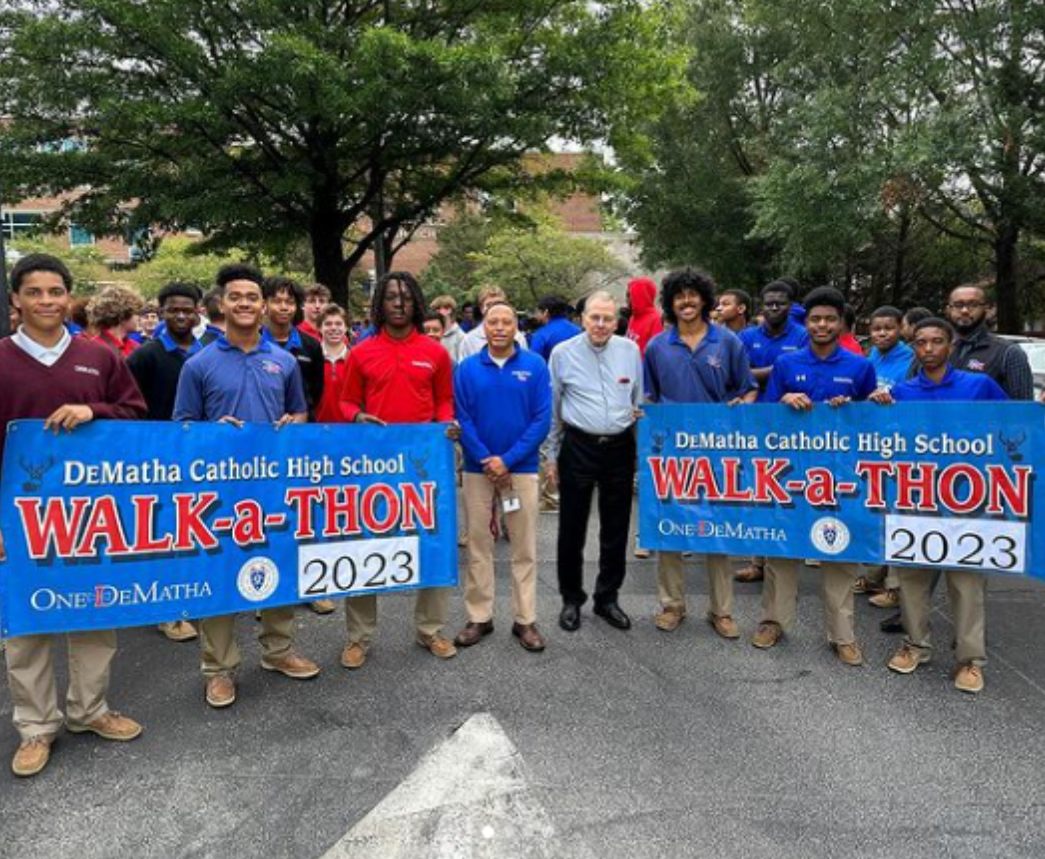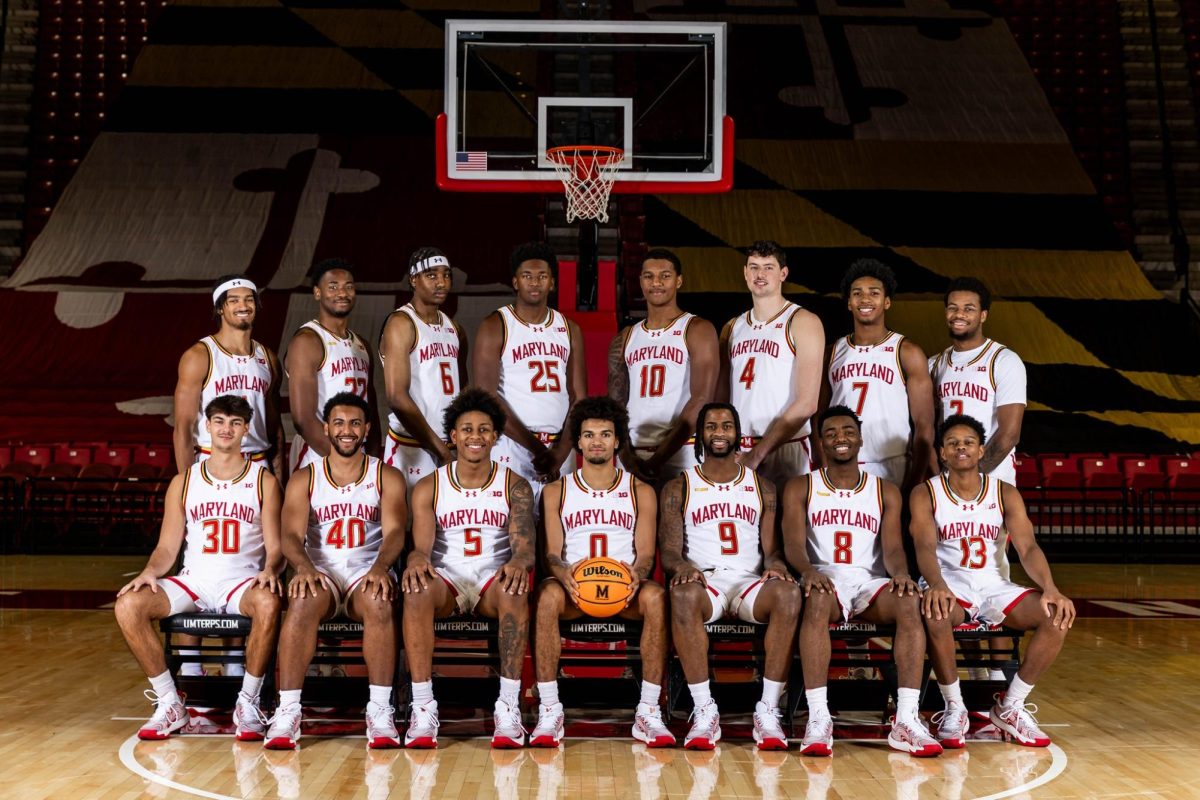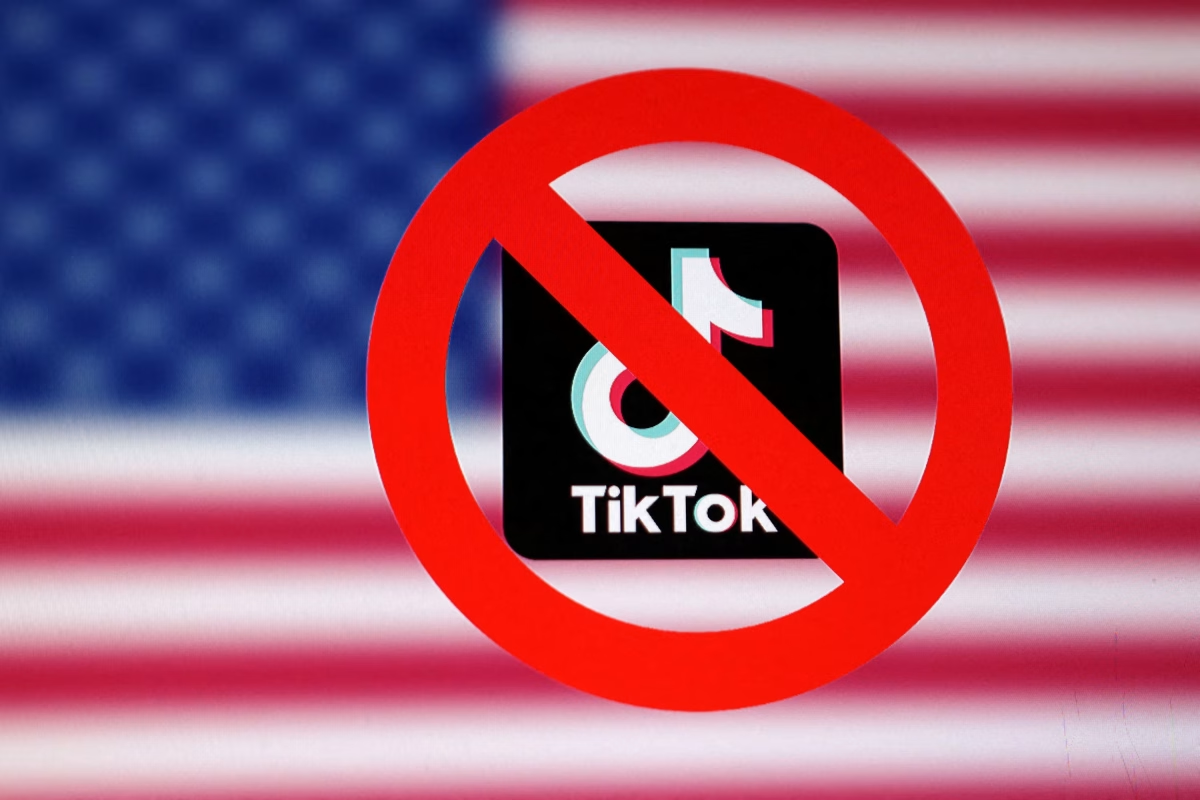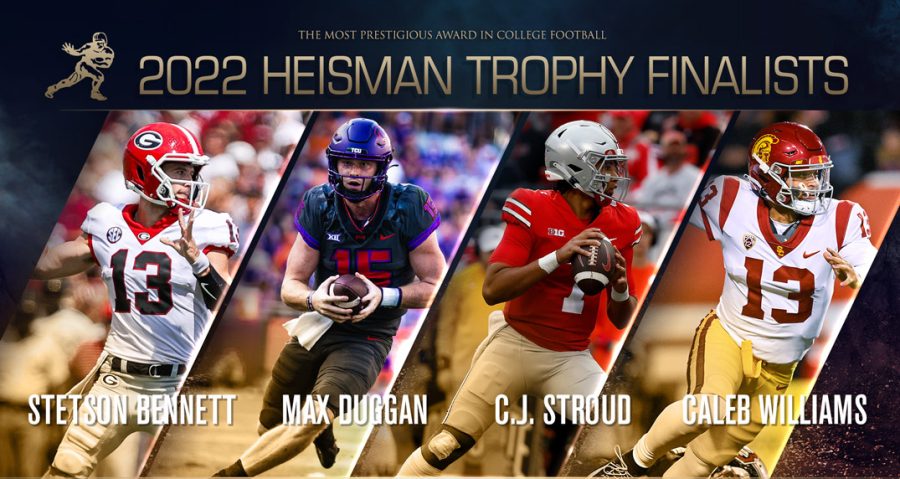“And the Heisman Award Goes to…”: 2022 Heisman Candidates
December 9, 2022
The Heisman trophy is the most prestigious award in college football. Named after football pioneer John Heisman, this trophy is given to the most prolific college football player of the year.
The Heisman has been awarded 86 times since its creation in 1935, garnering 85 unique winners and one two-time winner. The only person that won it twice was running back Archie Mason Griffin. The legendary tailback won the award in back-to-back years in 1974 and 75, cementing him as one of the greatest college football players of all time. In those years, Griffin set a multitude of NCAA records, including the most consecutive games with 100 rushing yards (31), and the most rushing yards for an entire career (later broken by Donnel Pumphrey).
Heisman winners are typically pretty successful in the NFL. Out of the last 50 Heisman winners, 26 have been selected to at least one pro bowl in their pro careers. Out of the last 70 winners, seven have won NFL MVP and ten have been inducted into the Pro Football Hall of Fame. Arguably the best player on this list is running back Barry Sanders. In 1988, Sanders had the widely-proclaimed greatest college football season of all time, totaling 2734 total yards and 37 touchdowns. Sanders then joined the NFL and went on to become the third player in NFL history (at the time) to rush for over 2000 yards. The elusive phenom is considered a top-three running back of all time in both college football and the NFL.
The Heisman trophy is an honor every college football athlete dreams of. Winning that award and hoisting the trophy idolizes you in college football forever.
The 2022 Heisman presentation will feature the 87th edition of the Heisman trophy, and the 86th player to receive the award. The four people in competition to hoist the trophy this year are quarterbacks Stetson Bennett, Max Duggan, C.J. Stroud, and Caleb Williams.
The favorite to win the Heisman trophy is Caleb Williams. The USC signal-caller had an incredible season, completing 66% of his passes for 4,075 yards and 47 total touchdowns to 4 interceptions. Williams started his collegiate career at Oklahoma, starting for the Sooners under Lincoln Riley as a true freshman. When Riley left Oklahoma for USC the next year, Williams followed him and led the Trojans to their most wins and highest AP ranking since 2017.
Williams makes a legitimate case as the Heisman winner. Out of everyone in college football, he is 4th in passing yards, tied for 1st in passing touchdowns, and 1st in total touchdowns. In addition, Williams captured his “Heisman moment,” breaking off a 20-yard run on a broken play that consisted of him circling around the field and evading multiple defenders with an array of moves (including a nasty stiff arm). That play highlighted a four-touchdown day from Williams that allowed USC to beat 15th-ranked Notre Dame by two scores. William’s magical season justifies his name being called as the Heisman winner.
The second favorite to win the Heisman is Max Duggan. This season the TCU quarterback completed 66% of his passes for 3,375 yards, 36 total touchdowns, and only 4 picks. Duggan has played his entire career at TCU, improving year after year and capping off his career with a Heisman-like senior season.
Two valid arguments for Duggan being crowned the “best player in college football” is due to his team’s success and his story. After the regular season and conference championships, TCU sits at a record of 12-1 and is slated to play Michigan in the College Football Playoff. With Duggan at the helm, TCU has their most wins in a season since 2014 and has become the first team from Texas to appear in the College Football Playoff ever. Before achieving his historic season, Duggan faced a major setback in 2020, suffering from Wolff-Parkinson-White syndrome that caused him to undergo a nine-hour-long surgery. Despite the severity of the surgery, Duggan returned to football after four weeks and blossomed into one of college football’s brightest stars. Duggan’s excellence on the gridiron as well as his handling of adversity off of it embodies the traits of a Heisman winner, thus making him a legit candidate to claim the honor.
The third favorite to win the Heisman is Stetson Bennett. The Georgia Bulldog completed 68% of his passes for 3,425 yards, 27 total touchdowns, and 6 interceptions. Bennett is currently a senior, playing all of his years at Georgia. In his junior year, Bennett led the Bulldogs to a national championship, garnering MVP honors in the game. This year Bennett has sustained his elite level of play and is looking to receive some more individual hardware.
Two reasons why Bennett could win the Heisman is due to his team’s excellence, and his ability to step up in big games. Georgia is considered to be the best team in college football, as they have amassed a 13-0 record while playing one of the toughest schedules in college football. Two of their toughest matchups were their battle for No. 1 game against Tennessee, and their SEC championship game against LSU. Going into the Tennessee game, the Volunteers were ranked higher than Georgia and a few believed they were the best team in college football. Bennett then shut up those critics by accumulating 273 total yards and 3 touchdowns as the Bulldogs demolished the Vols 27-10. Coming into the game against LSU, multiple favored teams were upset in their conference championship games, leading some to speculate whether or not this could be true for Georgia. Bennett dispelled this narrative as he had 274 passing yards and 4 total touchdowns, leading Georgia to a 50-30 blowout win against LSU. Bennetts’s ability to be clutch in the most crucial games resembles that of a Heisman. Although Bennett’s counting numbers aren’t on par with the other candidates, he is still a bonafide Heisman candidate.
Lastly, the fourth favorite to win the Heisman is C.J. Stroud. This season the Ohio State Buckeye completed 66% of his passes for 3,340 yards, 37 touchdowns, and 6 picks. Stroud is in his junior year, his second year headlining Ryan Day’s system. Stroud put up inhumane numbers his sophomore year, eclipsing the 4,000-yard, 40-touchdown mark as he finished second in the Heisman race to Alabama’s Bryce Young. This year he seeks a vengeance tour as he wants to finish no less than first.
The argument that can be made for Stroud concerning the Heisman is his supreme efficiency. While only attempting 355 passes all year (29 per game), Stroud tied for 1st in passing touchdowns. This led to him having a QBR of 87.7, placing third in all of college football and better than every other Heisman candidate. Stroud’s superb deep ball accuracy is a big reason for this. His ability to throw the long ball allows him to maximize his yards and touchdowns while minimizing his attempts and completions. Two prime examples of this are Stroud’s demolition of both Arkansas State and Michigan State. Against Arkansas State, Stroud completed 16 of 24 passes for 351 yards and 4 touchdowns, resulting in 14.5 yards per attempt, 22 yards per completion, and a 91.4 QBR. Against Michigan State, Stroud completed 22 of 27 passes for 351 and 6 touchdowns, resulting in 13 yards per attempt, 16 yards per completion, and a 97.9 QBR. Despite having the “lowest odds” to win the Heisman, Stroud has a compelling argument that could justify him walking away as the winner.
This year’s Heisman race consists of four candidates who all put up great seasons. On Saturday, December 10, we’ll see whose season the voters believed was greater than the others.









